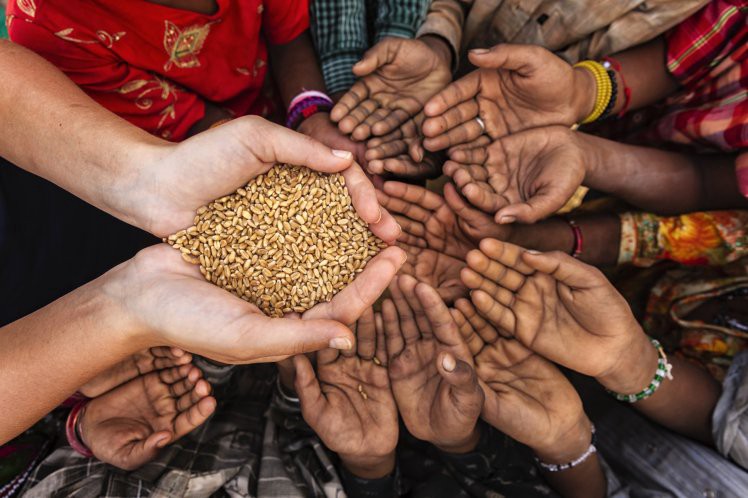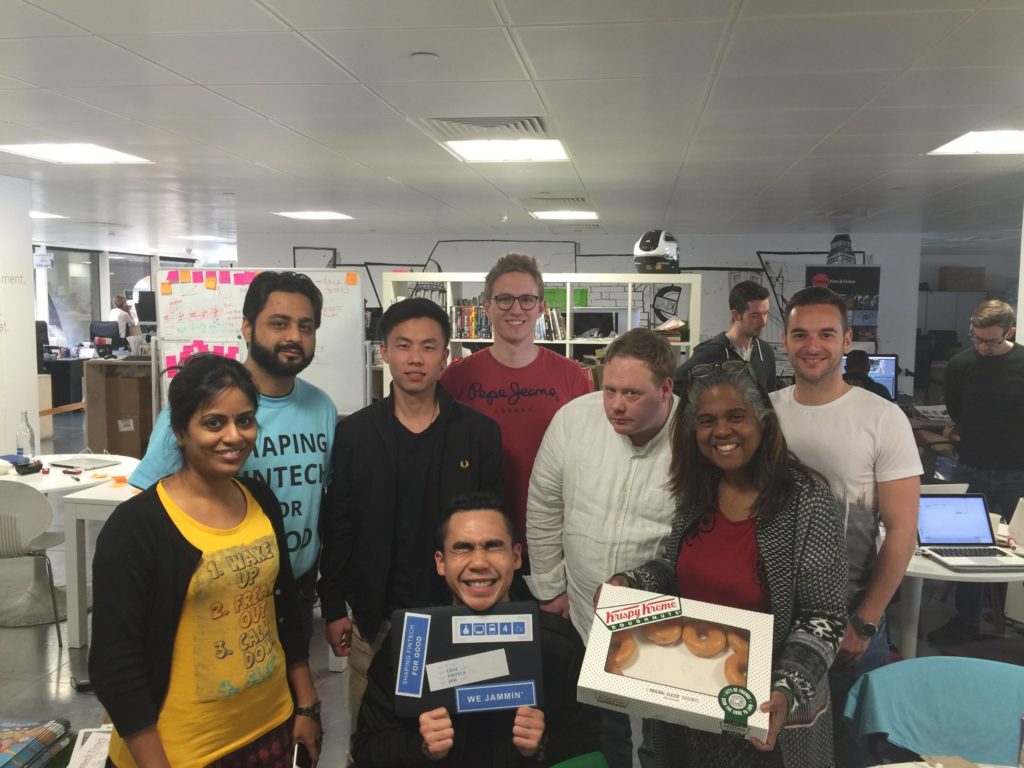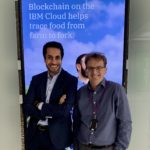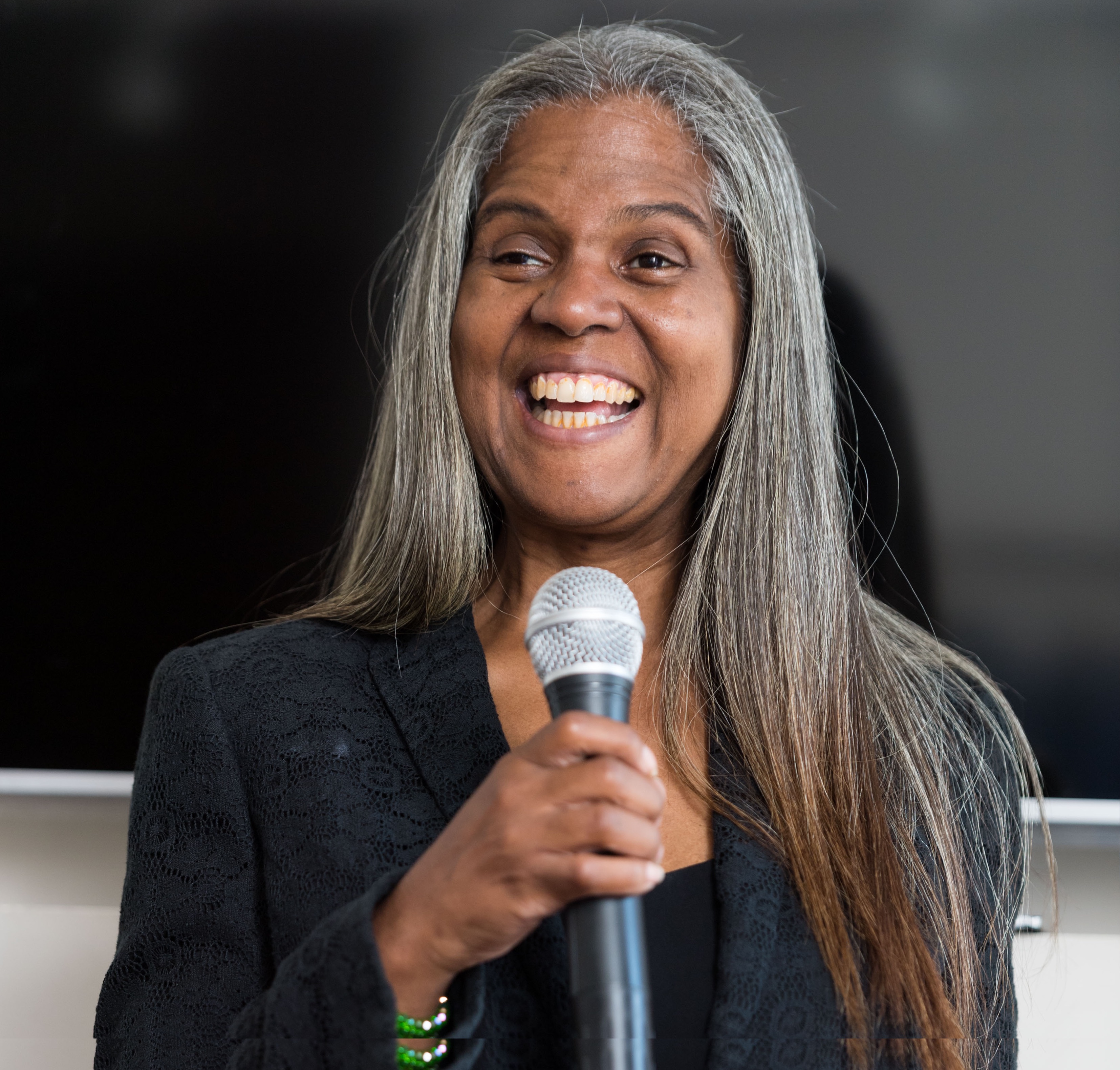
Genevieve Leveille, Founder and CEO of AgriLedger, a blockchain solution built on R3’s Corda which has been used to support fruit growers out of Haiti. In this podcast, Genevieve shares with us how their solution enables supply chain through the use of value chain – value transfer and value retention throughout. She also shares how AgriLedger has helped farmers in Haiti get a 750% increase in revenue per kilo of quality mangos sold.
What is blockchain?
For Genevieve, blockchain is an infrastructure technology. Blockchain is a mechanism to allow different parties, with different needs, to collaborate and create information exchange. It’s about capturing data in a fashion that is known to be true at the moment of capture.
Genevieve is interested in the application of blockchain technology for the food industry. She explains that having food poisoning is usually due to the fact that you don’t know where the food came from, if it had the right refrigeration and other factors which blockchain could address.
Challenges of the Agro-Food Industry
According to the Food and Agriculture Organisation of the UN (FAO):
- “An estimated 30% of the food produced for human consumption globally is lost or wasted somewhere along the food supply chain.”
- the world’s population is predicted to reach 9.1 billion by 2050 and this will require an increase of 70% in food availability.
- “Smallholders provide up to 80 percent of the food supply in Asian and sub-Saharan Africa.”
At the Rio+20 Conference on Sustainable Development in June 2012, UN Secretary-General Ban Ki-moon announced a new global challenge for world leaders and individuals from all sectors: create a world where no one is hungry. He emphasized that there is enough food in the world to feed our population, so the challenge comes from making sure that everyone has access to the food they need to live happy, healthy lives.
Ban called this initiative the Zero Hunger Challenge.
The Zero Hunger Challenge has five pillars:
- 100% access to food and nourishment all year round
- Ending stunting among children under two years of age
- Making all food systems more sustainable
- Doubling productivity and income for smallholder farmers
- Reducing food waste and post-harvest losses
In spite of efforts to meet the zero hunger challenge, global hunger has been increasing even before the coronavirus pandemic, the United Nations has warned, putting its Zero Hunger 2030 target in doubt.
An annual study estimates almost 690 million people went hungry in 2019 – up by 10 million from 2018 and by nearly 60 million in five years according to the latest edition of The State of Food Security and Nutrition in the World (SOFI).Across the globe, the Covid-19 crisis could tip over 130 million more people into chronic hunger by the end of 2020, the report predicts.
According to Oxfam: “COVID-19 is deepening the hunger crisis in the world’s hunger hotspots and creating new epicentres of hunger across the globe. By the end of the year 12,000 people per day could die from hunger linked to COVID-19, potentially more than will die from the disease itself.”
With classrooms closed due to the COVID-19 pandemic, two UN agencies are urging governments to act now to shore up the futures of the 370 million children worldwide who depend on school meals.
Genevieve disagrees with the point that 30% of the food produced is wasted as this only measures food going from the farm to the table. It doesn’t measure the amount of food that goes into the fridge and that is ultimately thrown out.
In her opinion it isn’t that we’re not producing enough food to feed everybody, it is that we’re wasting so much of it, or we don’t know where it is and it isn’t going to the right places. She believes that if we change and we reduce the amount of ways we handle food we can get closer to zero hunger.
In addition to those challenges as there is a drop-in remittance coming in, many of the smallholder farmers will not have grown the food that is necessary. This has created the fear that in the next 9 to 18 months we’re going to see an increase in poverty and hunger out of Africa.
All of those numbers are part of the reason of what Genevieve and her team are trying to do at AgriLedger which is to empower the smallholder farmer by giving them access to markets and access to financial services. Genevieve stresses that whilst she is involved in agriculture she is ultimately involved in the value chain of agriculture. It isn’t about teaching smallholder farmers to grow more food but to grow good value, quality products which gets them a better price.
AgriLedger’s Story
AgriLedger started off as a hackathon in 2016 where the objective was to see how you can use technology to really change the lives of a million plus individuals. Food is something that connects us all. They tried to develop a solution that helps to address the problems of having enough food and not getting sick from food.
Around the same time the UN’s Sustainable Development Goals (SDGs) were recently launched that helped to guide AgriLedger’s mission which is to work with smallholder farmers to ensure that they get a fair share of the proceeds of their products and for its consumers to have traceability of where the food came from.
AgriLedger’s solution
There are numerous participants to AgriLedger. You have the producer/farmer then you have what they call the extension service which provide the farmer with access to the services they require. The importer/broker who knows the clients who is going to buy the product in their local market. The client who buys the product itself, and finally the bank.
All these individuals and organisations are acting in consortium to ensure the consumer gets the product and that the farmer and all the participants that facilitate making this transaction happen, get money distributed to them.
AgriLedger provides their smallholder producers with a digital identify and a digital wallet that provides them with financial inclusion. This isn’t about providing them with a bank account, it’s more about providing them with the financial history which can be used to demonstrate that they have an income when applying for a bank loan.
Using blockchain and why R3’s Corda
Genevieve doesn’t believe she could have built her solution without a blockchain. Centralised databases brings up the issue of having few people who are controlling it. At the same time aligning every parties’ interests together on a centralised database is more difficult. Blockchain enables traceability in a transparent system and you can enable gamification for participants to behave in a collaborative manner.
By February 2019, Genevieve was introduced to R3’s Corda and she was intrigued by the notary nodes and how data is passed over. As she puts it: “I then knew that the information allowed for collaboration without giving out the secret sauce. So now, if I wanted to protect somebody’s identity, if I wanted to work in an environment where various parties were offering the same service, but wanted to be able to keep their data or their information, private, this would be the platform.”
Pilot in Haiti
AgriLedger has partnered with Ecole Supérieure d’Infotronique d’Haiti (ESIH) to launching its pilot in Haiti providing “boots on the ground” as Haiti has been in a complete political lockdown since September 2019. Part of the contract with ESIH is to provide educational opportunities not just for the students but also at the government level to help expand opportunities. One of their latest educational initiatives was with the ConsenSys Academy in providing 10 scholarships for young women to enter the ConsenSys Developer Boot Camp.
The Haitian government received an IDA (international development association) from the World Bank which is looking at how to alleviate poverty in the bottom 40%. As part of the World Bank’s investigation on how to alleviate poverty they looked at using blockchain technology as they felt it could help solve the problem.
In terms of how the application works. A smallholder producer only needs a phone to get started.
As a national road was being built farmers where invited to register their phone number to participate in the AgriLedger pilot. If the farmer’s trees are bearing fruit they can make a phone call to state how many mangos they have and have them picked up. In the future farmers will be able to do this by SMS.
A message is relayed to the farmer telling them when their fruit will be picked up and at what location point. Logistic providers are provided the information to be able to make multiple pickups along a particular road. The fruits are inspected and counted. A contract is provided to the farmer where they give the right for their fruits to be transported, to be given to a broker to be sold to the US and a promise is made to pay the farmer when payment is made for the fruits. Additionally, the farmer gives the right to AgriLedger to share their data to those who need to know to facilitate the transaction. The contract is signed (in the future it will be digital). Every step of the way including when the fruits are sold, the farmer receives an SMS informing him of each transaction. If the farmer asked to be paid in cash he will be told when to pick up the money from the bank or else payment is made by money transfer or by mobile money.
AgriLedger’s process changes the risk. The farmer has a risk. He has to produce a quality produce. In the past a farmer would get paid $0.14 / kilo but they could sneak in a couple of kilos in a batch that weren’t so good.
A box of 4.5 kilos would get about $0.50 – $0.60 in Haiti whilst in the US it would get $10.50 of which a percentage goes to the broker. A percentage of the funds will go to the transportation company, to the service providers and the rest goes to the farmer. The farmer will get an average of $4 to $5 a box.
On the 1st of May 2020, AgriLedger’s pilot collected 38,000 kilos of mangos resulting in $40,000 of sales minus some losses in between. Of that farmers received 68% of the funds which in comparison to selling to the local market in Haiti represents a 750% increase in funds for those same mangos.
Value chain
Genevieve describes AgriLedger as enabling supply chain through the use of value chain. She believes that value chain is more important than supply chain because if brings fair and equitable value in a clear and transparent manner to all the participants.
Value transfer and value retentions is what’s most important in creating the ability to track quality. AgriLedger isn’t here to encourage farmers to produce more but to understand the market demands, to meet them with the right quality and quantity of produce and to ensure that this amount goes through the whole value chain.
Blockchain and the Web 3.0
For Genevieve, blockchain is the foundational layer of the Web 3.0 that brings in IoT, AI and other emerging technologies. Blockchain is the foundation of creating the trust in data. If IoT isn’t being used then you’re relying on people entering data which is prone to human error and to malicious actors. Using IoT allows to capture data such as humidity, temperature, ethylene level, CO2 and others without have to be concerned that there is this human issue in the middle.
Machine learning and AI allows farmers to be more efficient with how to use weather data.
Plans for the next 12 months
Since July of 2020, AgriLedger has done a number of improvements to the AgriLedger application in Haiti. For example they have created on R3’s Corda an observer node that pulls information from multiple locations to that node.
Additionally, AgriLedger has done a small pivot as with COVID they have identified the need around the whole supply chain of medical goods. AgriLedger has been working on the digitization and tracking of individual tests. They hope by the end of October to have completed a pilot they are working on with a consortium with suppliers in China, partners in Italy, Germany and Switzerland to create the whole picture of certainty and assurance that the goods that have been transported are what they are and they have not been tampered with. And also that the environmental requirements such as temperature and humidity have not been affected.
AgriLedger is also working on a digital passport of immunity.
_______________________________________________________________________________________________________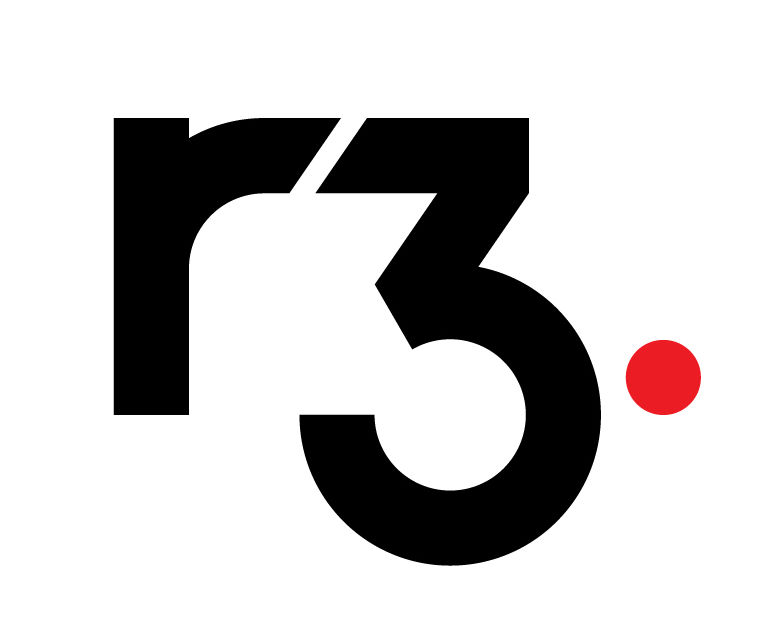
This episode is brought to you by our friends and sponsors at R3. In this digital-first world, now more than ever, businesses need to modernize existing processes, systems and models – and enterprise blockchain provides the ideal solution for transacting directly and streamlining business operation.
Developed by R3, Corda is light years ahead of other blockchain platforms in terms of privacy, security, scalability and interoperability. And–because Corda was built to meet the stringent requirements of highly-regulated industries, it can be used by firms of any type or size and in any industry.
Blockchain applications built on Corda can reimagine and increase the potential of existing business networks, enabling direct and trusted transactions that eliminate friction and accelerate growth.
Check out r3.com to find out more.

